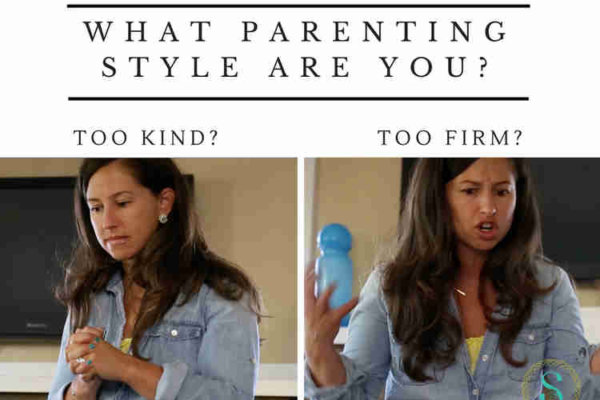Liar, Liar: Why I Don’t Stress When my Nanny Kids Fib
Something I see pop up occasionally in online nannying groups is concern & frustration over nanny kiddos telling lies. I totally get it; nobody likes being lied to! I see suggestions of taking things away, lecturing & punishing, forced apologies, and even trying to scare kids out of lying. In fact, I remember being told “you’ll go to hell if you tell a lie” when I was a young child, and it was terrifying!
I’ll offer you a different solution: let it go.

Here’s why…
It’s Normal
Get this: everybody lies. We’ve all told a friend we like their new haircut when we don’t, exaggerated how often we’re flossing for the dentist, or said we liked a gift that we’ll actually never use. Even propagating the ideas of Santa Claus and the Tooth Fairy are a type of fun, harmless lie. It’s part of life and our social norms that some fibs are okay and sometimes even expected, whether to keep the peace or because of expectations around manners. So why do we come down so hard on kids when they don’t tell us the 100% truth?
It’s Developmental
Young kids love story telling, and we love sharing nonsense and fiction stories with them, too! It’s totally okay for them to make up silly tall tales. Toddlers and preschoolers can move between imagination and reality smoothly and easily, and that shows when they recount memories with you. Just enjoy their creative stories! One of my nanny kids used to tell all kinds of stories centered around chickens: seeing random chickens, caring for the chickens, recounting adventures she had with these chickens – I was never concerned about her grip on reality or her morality; I just enjoyed her funny stories and laughed along with her. One of the best parts about young children are their creative imaginations. Enjoy them!
With older kids, we may see them lie because they want to maintain a relationship with us and make us happy. They’ll tell a lie to avoid negative repercussions. They don’t want to be punished and are thinking short-term: “How can I keep my nanny happy and connected with me in this moment? Not by admitting I didn’t do my homework!”
Dr. Jane Nelsen says, “Usually children lie for the same reasons adults do, they feel trapped, are scared of punishment or rejection, feel threatened, or just think lying will make things easier for everyone,” and Dr. Tina Payne Bryson says, “lying is developmentally normal—a promising sign that your child’s conscience and moral code are intact and budding.”
It’s easier to cut them a little slack when we understand the why behind the lie.
So, What Should We Do?
Step One
Step one is not to set kiddos up with a line of questioning that invites them to lie. Don’t ask them, “Who made this mess!?” when you already know that they did! Don’t ask, “Who broke this bowl?” when you know they broke the bowl. Don’t set them up to lie to you; just acknowledge what you see and know and move forward. “Uh oh! I see this broken bowl. How can we get this cleaned up safely?”
I’ve really had to put this into practice myself with the six-year-old I nanny. She has a habit of putting toys, papers, small objects, & other non-food items into her mouth, which isn’t a habit that I want to encourage. I can tell when she’s doing it, and it’s going to go one of two ways. If I ask her what’s in her mouth, she’s going to reactively say, “nothing!” because she knows she isn’t supposed to have that junk in her mouth. If I wasn’t a Positive Discipline nanny, this could turn into some big blowout about her lying to me, but what’s helpful about that? Instead of setting her up to lie, questioning her, or lecturing, I can keep it super simple, discreet, & copacetic by making eye contact & putting my fingers near my mouth – that’s enough of a cue to let her know she needs to remove that object from her mouth, and it takes about 2 seconds to solve this issue instead of getting into some long, needless conflict or speech about morality & choking hazards.
Step Two
Step two is talking about & teaching about telling the truth. When kids do lie, you can remind them of the expectation and importance of telling the truth. You can share with them examples of times you’ve seen them tell the truth and share your own stories about consequences that come with telling the truth or with lying. You can also genuinely thank the children you care for when they do tell you the truth. “Oh, wow! Thanks for letting me know how this vase got broken. It helps me to know what happened. Let’s make a plan for how we can fix this.” Keep your focus on solutions for the issue at hand.
Step Three
Step three is to move on with your day! Kids who told a lie aren’t malicious and aren’t bad kids. They made an understandable, developmentally appropriate choice in the moment. There will be many, many more chances & opportunities, even today, for them to tell the truth! Practice telling the truth in a tricky situation with your nanny kiddos via a role play or using dolls or stuffies. Use books & stories to spur a conversation about the importance of honesty: The Boy Who Cried Wolf is a classic for a reason! For a newer story, check out “The Empty Pot” by Demi or “Norman Didn’t Do It! (Yes, He Did)” by Ryan Higgins. Why not throw a few kids’ songs about honesty into your playlist?
Again, all kids lie. I’ll wager that all adults do, too. It doesn’t make us inherently bad people. Social cues & dynamics are complex, and we’re all doing the best we can to stay connected to others and avoid uncomfortable situations. Instead of freaking out when you catch your nanny kids telling a lie, move forward with grace, keep teaching, and let it go.





Comments